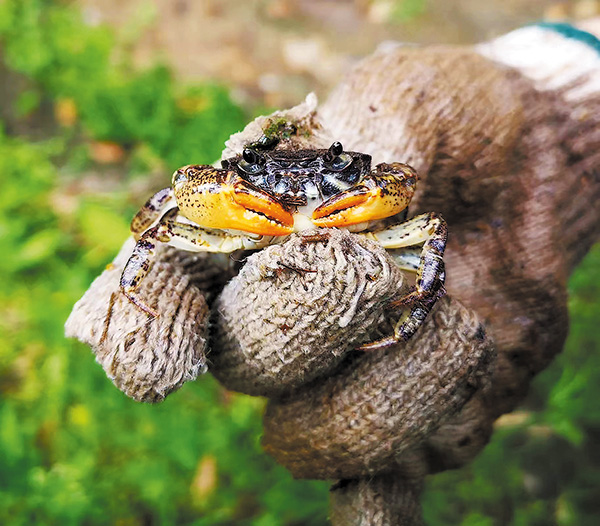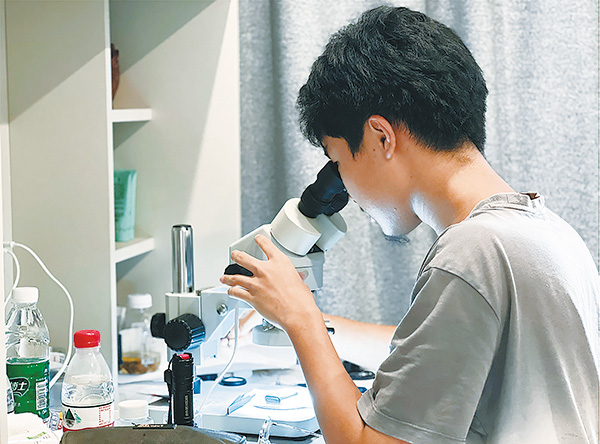Local teen makes amazing discovery

The crab Zhang discovered, named Sinolapotamon cirratum sp. nov., as a new species of Sinolapotamon. [Photo by Qin Qin/For China Daily]
Compared with indulging in smartphones and games, Zhang Yixuan prefers spending his summer vacation walking in wild nature, encountering little creatures like shrimps and crabs.
The 17-year-old went viral on Sina Weibo recently for his knowledge of biology, which led him to discover a new species of freshwater crabs of the genus Sinolapotamon last year.
Zhang is now a senior student at Yulin High School, which is situated in the city of Yulin, South China's Guangxi Zhuang autonomous region.
Like most of his peers, Zhang is facing immense academic pressure as he is preparing to attend the national college entrance examination, or gaokao, next year.
However, his bedroom is packed with dozens of "living treasures "that he has collected from the outdoors, including insects, fish, shrimps and crabs.
Stepping into his bedroom, you can see numerous tiny eyes. Different in size and look, crabs are crawling in their containers on a huge shelf. It seems that they quite enjoy their life there.
"This one is a species of Nanhaipotamon that I caught in a mountainous area. You can see it just shed its shell," said Zhang, pointing to a vibrant crab moving its amusing eyes around.

Zhang observes the abdomen of a crab with a microscope at his home. [Photo by Qin Qin/For China Daily]
There is also a row of empty bottles and jars to store his specimens.
"I can notice the slight differences between two shrimps, and then I take them back to my room for further observation," said Zhang.
It is the microscope that his father bought him that makes the bedroom look more like a mini biology lab than anything else and it's a place where Zhang can devote himself to identifying shrimps or observing crabs day and night.
With the help of the microscope, Zhang immerses himself in decoding the natural world. Sometimes he spends hours simply examining a piece of fish scale, the leg of a crab or the antenna of an insect.
"I'm often amazed by what I see while placing these tiny and fragile things under the microscope. No matter how humble an insect is, each life is so delicately and uniquely structured," said Zhang, who often works so late that his parents have to force him to go to bed.
It was his deep passion for nature that led Zhang into a new world of discovery.
Last year, a group of crabs caught Zhang's attention since they looked unusual compared with the commonly seen ones in Rongxian county, where he lives. He decided to take seven of them home. After much observation and copious research by reading related articles and documents, Zhang speculated that it must be a new species.
Although he felt inspired and excited, he was worried that his assumption based solely on morphological identification was not precise enough.














